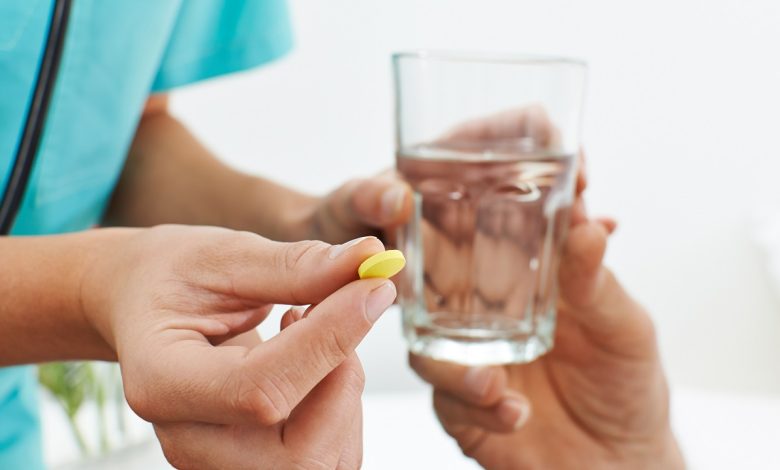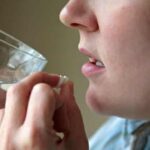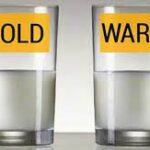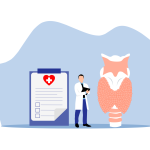How Much Water Should You Take With Your Medication?

Taking medication can be an important part of managing certain health conditions, but it’s important to take your medication correctly to ensure that it is effective and safe. One aspect of taking medication that is often overlooked is how much water to take with your medication dose.
In this article, we’ll explore why water is important when taking medication and how much water you should take with your medication dose.
Why is water important when taking medication?
Water is important when taking medication for a few reasons. First, water helps to ensure that the medication is properly swallowed and reaches your stomach for absorption. Some medications can get stuck in your throat or esophagus, which can lead to irritation or other problems. Drinking water with your medication helps to ensure that the medication goes down smoothly and reaches your stomach, where it can be absorbed into your bloodstream.
Second, water can help to prevent side effects associated with certain medications. For example, some medications can irritate the lining of your stomach, which can cause nausea or other digestive symptoms. Drinking water with your medication can help to dilute the medication and reduce its impact on your stomach lining.
How much water should you take with your medication dose?
In general, it’s a good idea to take the medication with a full glass of water, which is usually between 8 to 10 ounces (about 240 to 300 milliliters). This amount of water is typically enough to ensure that the medication is properly swallowed and reaches your stomach.
However, some medications may require more or less water or may need to be taken with food. It’s important to carefully read the label and any accompanying instructions provided with your medication and to follow the advice of your healthcare provider or pharmacist. If you have any questions or concerns about how to take your medication, it’s always best to check with your healthcare provider or pharmacist for guidance.
Should I take my medication with cold or hot water?
When taking medication, the temperature of the water you use to swallow it is generally not a significant concern, as long as the water is safe to drink. In most cases, it’s fine to take the medication with room temperature or cold water. However, there are some exceptions to this.
For example, some medications may be more effective when taken with warm water, as it can help to dissolve the medication more quickly and make it easier to absorb. Additionally, some medications may cause irritation to the esophagus or stomach, and taking them with warm water can help to soothe these areas.
On the other hand, some medications should not be taken with hot water, as it can affect the stability or effectiveness of the medication. For example, some antibiotics and supplements containing probiotics should not be taken with hot water, as it can kill the beneficial bacteria in these products.
It’s important to read the label and any accompanying instructions provided with your medication to determine if there are any specific recommendations for the temperature of the water you should use. If you have any questions or concerns about how to take your medication, it’s always best to check with your healthcare provider or pharmacist for guidance.
It’s also important to note that certain medications may interact with certain types of water, such as mineral water or water that is high in calcium. If you have concerns about how the type of water you’re drinking may affect your medication, be sure to ask your healthcare provider or pharmacist for advice.
Can I take my medication with carbonated drinks or juice?
No, it is not recommended to take medications with carbonated drinks or juice because they can interfere with the absorption and effectiveness of the medication. Carbonated drinks and juice can alter the pH level of your stomach and affect the way your body absorbs medication.
Some carbonated drinks or juice may also contain ingredients that can interact with certain medications, making them less effective or causing unwanted side effects. For example, grapefruit juice is known to interact with a number of medications, including statins used to lower cholesterol and some blood pressure medications.
It is generally recommended to take the medication with plain water, as it is less likely to interact with the medication and can help to ensure that the medication is properly absorbed by your body. If you have difficulty swallowing pills or tablets, you can also try taking medication with a small amount of food, such as a spoonful of applesauce or yogurt, as long as the medication label or your healthcare provider does not specify that it must be taken on an empty stomach.
Does drinking water help flush out medication?
Drinking water can help to flush medication out of your system, but it’s important to note that this is not always a good thing. Some medications need to be absorbed into your body and remain in your system for a certain period of time in order to be effective. In these cases, flushing the medication out of your system too quickly can reduce its effectiveness.
However, there are some medications that can build up in your body over time and cause harm if they are not properly eliminated. In these cases, drinking water and staying hydrated can help your body to eliminate the medication more quickly and prevent harmful buildup.
It’s important to note that the rate at which medication is eliminated from your body can depend on a number of factors, including your age, weight, overall health, and the specific medication you are taking. If you have concerns about how a particular medication is being eliminated from your body, it’s always best to check with your healthcare provider or pharmacist for guidance.
In general, it’s a good idea to stay hydrated and drink plenty of water when taking medication, as this can help to ensure that the medication is properly absorbed and can also help to prevent dehydration, which can be a side effect of some medications.
Conclusion
In conclusion, water is an important part of taking medication, as it helps to ensure that the medication is properly swallowed and reaches your stomach for absorption. In general, it’s a good idea to take the medication with a full glass of water, but it’s important to read the label and any accompanying instructions to determine the best amount of water to take with your medication dose. If you have any questions or concerns about how to take your medication, be sure to consult with your healthcare provider or pharmacist.





